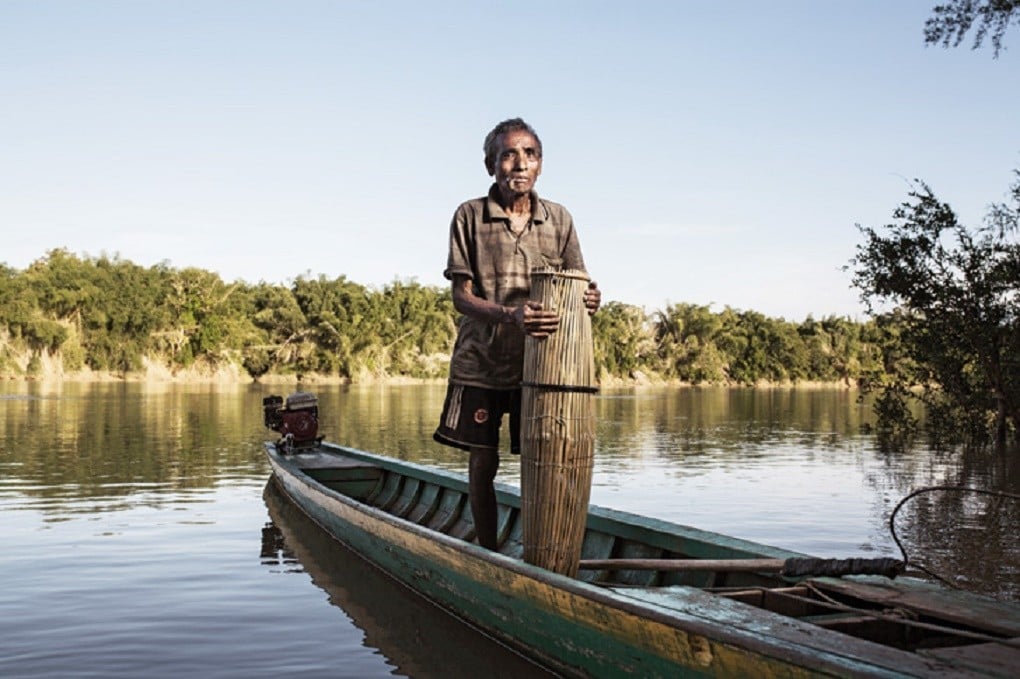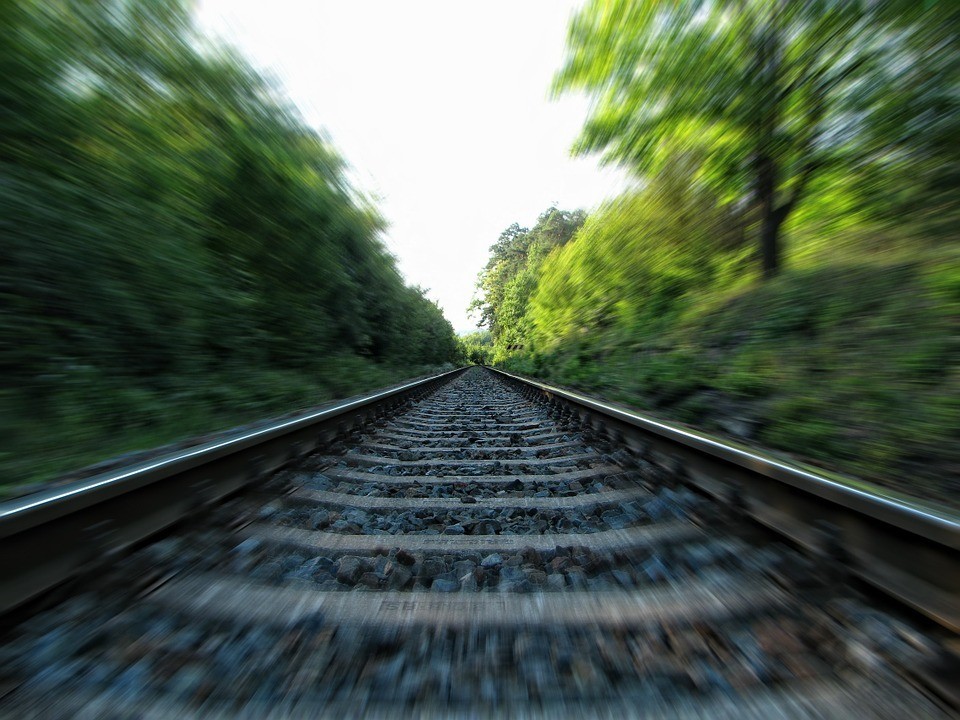The giant dam is one of the most controversial construction projects in Cambodia. The electricity-generation potential of the Lower Sesan 2 is massive but, for the Mekong River’s aquatic life and nearby villagers, the price of such progress could be colossal. This photo essay explores the issues.
Category: Region
Selected environmental stories from media outlets in the Mekong region and beyond.
What Will an NLD Government in Myanmar Mean for Business?
Investors have up to now been cautious on entering Myanmar due to lingering sanctions, while others who have been waiting out political uncertainties may be assured by the NLD’s sweeping victory, which leaves little doubt over the preference for fully civilian rule.
Heated Mae Sot SEZ 97 households are convicted
Lands have been expropriated and Mae Sot villagers, who worry about having industrial estates in the area instead. They protested against the issuing of ‘land deeds’ for originally reserved forest. If the state succeeds then local communities could be arrested as invaders, said a conservation group of Mae sot residents. The expropriated areas include 803 rai of national reserved forest, 2,182 rai of permanent forest area, and 13 rai of public space. The Industrial Estate Authority of Thailand was assigned to manage 803 rai and the Treasury Department manages 1,287 rai.
China, Mekong countries launch Lancang-Mekong Cooperation framework
The Lancang-Mekong Cooperation (LMC) framework was officially launched on Thursday following talks among senior foreign affairs officials from China, Thailand, Cambodia, Laos, Myanmar and Vietnam in Jinghong, Yunnan Province.
FOCUSING ON THREE KEY AREAS
The Lancang-Mekong River is a natural link between the six countries.
At the first LMC foreign ministers’ meeting, they decided to cooperate in three key areas – politico-security issues, economic affairs and sustainable development, and social affairs and people-to-people exchanges.
At the invitation of Chinese Foreign Minister Wang Yi, Cambodian Deputy Prime Minister and Minister of Foreign Affairs Hor Nam Hong, Lao Deputy Prime Minister and Minister of Foreign Affairs Thongloun Sisoulith, Myanmar Foreign Minister U Wunna Maung Lwin, Thai Foreign Minister Don Pramudwinai, Vietnamese Deputy Prime Minister and Foreign Minister Pham Binh Minh attended the meeting, and Wang Yi and Don Pramudwinai co-hosted the meeting.
China, Laos to build $6.3 bln railway project by 2020 – China Economic Herald
China aims to complete laying a 418-kilometre (260-mile) railway from a border town to Laos by 2020, the official China Economic Herald reported, as the economic giant seeks a new route into the emerging markets of Southeast Asia.
The two countries agreed on Friday to jointly build a 40-billion yuan ($6.28 billion) railway from the border town of Boten to the Laos capital Vientiane, the Herald reported.
The deal was announced at a signing ceremony attended by senior officials from the National Development & Reform Commission the country’s top economic planner, China Railway Corporation and the Export-Import Bank of China, the paper said.
Laos, poor and landlocked, has traditionally been firmly in the orbit of its larger neighbour to the east, Vietnam.
But China has been aggressively courting Laos as it sees the communist-ruled country as an important route into Southeast Asia, and its ports on the Mekong River for landlocked parts of southwestern China such as Yunnan.
Thai power producer RATCH to invest $1b in overseas plants in Indonesia, Laos, China
Thailand’s listed power producer Ratchaburi Electricity Generating Holding PCL (RATCH) plans to invest around $1 billion in power plants in Indonesia, Laos and China, a top official with the company said.
The company expects its aggressive investment to double its electricity production capacity to 8,000 megawatts, increasing its enterprise value from the current level of 124 billion baht to 188 billion baht by 2018.
Rum Herabat, the newly-appointed chief executive officer, said the company is looking at three main approaches to increase business. These include – exploring new investments, managing efficiency of main power plants and completing construction of new power plants as planned.
The potential projects, for which the company is conducting feasibility studies and negotiation include, 2,000-MW JAWA7 in Indonesia, 400-MW Sekong 4 hydropower project in Lao PDR, seven solar farms projects for the public sector in Thailand (with a combined capacity of 35 MW) and 2,000-MW power plant project in China.
Myeik developer plans two island resorts
Compared with other destinations in Myanmar such as Bagan and Inle Lake, the islands in the Andaman Sea off the southern tip of the country are still underdeveloped, with just a handful of hotels and resorts.
“There are so many beautiful places in this archipelago, but not many resorts or facilities yet to attract tourism,” said U Aung Chain, project director and general manager of Myeik Public Corporation.
The entire area had just five hotels and motels with a total of 196 rooms by the end of 2014, according to the Ministry of Hotels and Tourism.
This may soon change. For the past two years, U Aung Chain’s company has been trying to secure Myanmar Investment Commission (MIC) permission to develop two islands – Saw Mon Hla and Kun Thee, which means “betel nut”.
300,000 Vietnamese coastal residents seriously threatened by forest loss-triggered erosion
Thousands of households along the coast of Tien Giang Province in the Mekong Delta have been seriously endangered by soil erosion caused by the loss of protective forests.
Since the strip of protective forest, 21 kilometers long, covering the coast of Go Cong District has been ruined, around 300,000 locals and 55,000 hectares of farming land there have been “put under a knife blade” for years.
Houses in the coastal area from the Soai Rap River mouth in Vam Lang Town to Den Do in Tan Thanh Commune are under permanent threat and may be swept away or sunk by erosion any time.
A sea dike of steel concrete was built along the coast to protect local residential areas but it is just a temporary measure since sea waves have continued to encroach on land day by day.
ADB Supports Cambodia’s Push to Develop New Environmental Plan
The Asian Development Bank (ADB) is supporting the Government of Cambodia to develop a National Environmental Strategy and Action Plan (NESAP) to help the country achieve its sustainable development goals.
The NESAP will prioritize policy tools and financing options to ensure that environmental protection and sustainable natural resource management are pillars of economic development. The plan was introduced to senior officials from 17 ministries, as well as development partners, at an ADB-supported workshop held in Phnom Penh on November 2, according to ADB.
“The NESAP is a strategy for all government ministries as well as the private sector, civil society, and development partners to integrate environmental concerns into economic policies and investments,” said Say Samal, Minister of Environment, in opening remarks at the start of the workshop. He added that all stakeholders would need to work closely together to achieve the NESAP aims.
Myanmar will join the first time on EITI report –7 Days Daily (Burmese language)
“Myanmar has $2.5 Bn income from oil and gas industry which is the data provide from the government” said Mr. Wan Aung, the CSO representative from Myanmar EITI committee. However, the figures will be much higher, as it excludes some of the oil and gas exploration site. The EITI report will release in January 2016. But, Myanmar will not report some other sectors, like gems. Myanmar government said the annual revenue from Jade is $650 mn, but the recent Global Witness report said, it could be $31 bn, and it equals 48% of the country’s GDP.



